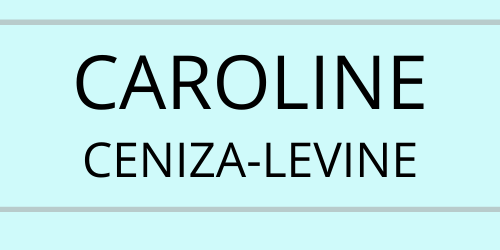The new year is always a good inflection point to recount the hits and misses for the past year and decide what will be different next year. On the job this past year, you probably encountered some sticky situations or had projects that fell flat. Many times it’s because of bad habits you might have picked up over the years. Make the new year a time to eliminate some of these bad habits.
Below are 10 career mistakes to stop making next year, but you can also check out my deep dive on careers, why they stall, how to assess where you are, and what you can do.
1 – You don’t speak up
Whether it’s in meetings or in the hall when you pass a senior executive you know you should meet, say something and stop regretting a missed opportunity. Practice in low-risk situations – ask a question in your weekly team meeting rather than the company-wide town hall. Introduce yourself to peers in other departments to hone your pitch before approaching senior management.
2 – You don’t maintain your boundaries
Whether it’s the colleague who asks you for help when you have your own things to do or the colleague who talks to you when you need to concentrate, just say No. Be polite but stay firm. Role play with that friend who has no problem being direct – we all know someone who is great at these sticky situations and can learn from them!
3 – You’re not on time
Even if you don’t come late but you feel rushed, you are not on time. Even if you meet a deadline but didn’t give yourself enough time to check your work, your work is not on time. Double-checking and time to edit should be part of the process. Set an early deadline for projects to give yourself buffer to review your work and incorporate new ideas. Set your appointment times for when you need to leave, not the start of the appointment, so you have a clear drop-and-go signal.
4 – You don’t do complete work
Double-checking your work. Leaving time for edits and new ideas to gestate. Incorporating other people’s ideas when it makes sense to generate consensus. Checking in with your boss (or whoever the project sponsor is) to ensure you are on the same track. These are examples of doing complete work. Identify where you might be shortchanging your process and build in extra time for upcoming projects.
5 – You’re not ready for push back
Another part of complete work is preparing for questions and many times hard, negative-energy questions. Know the source of the data you use. Be able to walk through the initial calculations, not just the end result. Be ready to explain how you came to your conclusion. Think of alternative conclusions and be ready to explain why you didn’t select these, also reasonable, ideas. Practice being neutral and not defensive.
6 – You don’t negotiate
Negotiation is one form of pushing back. All negotiations start with a disagreement (if you agreed on everything with your counterparty you wouldn’t need to negotiate!). If you’re someone who doesn’t like disagreement, you might just skip the negotiation – this is a career mistake. It’s not just about your raise or bonus or some other money negotiation. You negotiate deadlines when you ask for extra time on a project. You negotiate resources when you ask for an extra team member. You negotiate for information when you ask your peer in another department to run that report just for you. If your default position is that you don’t negotiate you might have rushed deadlines, fewer resources and less access, making your job harder than it needs to be. As with speaking up, practice in low-risk situations – ask for an extra hour or day on a project, even if you think you don’t need it. You can always turn it in early, but you experience how you can ask for more and the world won’t come to an end!
7 – You fritter away your best hours
Most people do their best work early in the day. By the end of the day, your energy is lagging, and you’re much more inclined to be behind from unexpected interruptions during the day. Do you protect those valuable early hours? Block out time on your calendar at regular intervals for when you need to do the creative, analytical, or otherwise more difficult work. Block out time early in the day to get your most critical tasks done.
8 – You do work that doesn’t matter
Of course, it’s easier to get your critical tasks done when you know what they are. When was the last time you checked in with your boss about the key objectives for your role? Business goals change by quarter, much less year over year. Your job might be very different from when you started, and yet, you may be operating on autopilot, focusing on the wrong things. One of my corporate clients had a performance review process whereby the manager and the person being reviewed would itemize the 3 key objectives for that job – those 3 items never matched! Don’t assume everything on your to do list needs to stay there. Don’t assume that you’re doing everything your boss expects. Ask explicitly what this year’s business priorities are.
9 – You don’t take a break
When you stop doing work that doesn’t matter, you may find you can actually take a lunch, take the day off, and take a real vacation. Taking breaks improves your productivity. Taking lunch improves your network, since you can socialize with colleagues, meet with people outside your company, or even return personal phone calls and emails so that you have a life outside your job. Even if you don’t want to finalize your vacation plans at the start of the year, at least schedule in lunch breaks now and schedule in reminders every quarter for when you will put in for time off.
10 – You don’t invest in yourself
Time off is an investment in recharging yourself. Time to network is an investment in your career foundation. Other investments include maintaining your skills, updating your marketing (e.g., resume, online profile), learning something new, and getting active outside your current job. As you work towards the current priorities for your company (see point 8!), you also want to establish the current priorities for your career. These priorities should NOT be the same as for your current job. Your job is but one part of your career. You should be investing in yourself and your career outside of the job you have right now.
=============
Which of these career mistakes are you guilty of? Which ones will you focus on for 2020?
Feeling stuck in your career? Check out my deep dive on careers, where I cover why people stall in their career, how to assess where you are in your career, and what you can do to move ahead.
A version of this post originally appeared in my column for Forbes.com.





